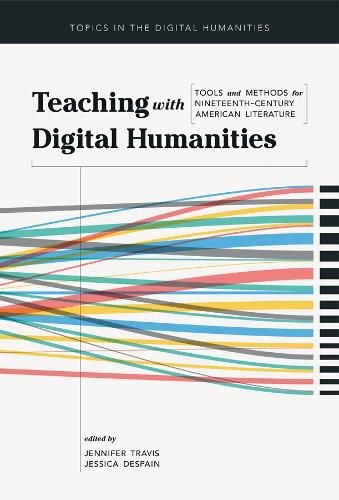Readings Newsletter
Become a Readings Member to make your shopping experience even easier.
Sign in or sign up for free!
You’re not far away from qualifying for FREE standard shipping within Australia
You’ve qualified for FREE standard shipping within Australia
The cart is loading…






Jennifer Travis and Jessica DeSpain present a long-overdue collection of theoretical perspectives and case studies aimed at teaching nineteenth-century American literature using digital humanities tools and methods. Scholars foundational to the development of digital humanities join educators who have made digital methods central to their practices. Together they discuss and illustrate how digital pedagogies deepen student learning. The collection’s innovative approach allows the works to be read in any order.
Travis and DeSpain curate conversations on the value of project-based, collaborative learning; examples of real-world assignments where students combine close, collaborative, and computational reading; how digital humanities aids in the consideration of marginal texts; the ways in which an ethics of care can help students organize artifacts; and how an activist approach affects debates central to the study of difference in the nineteenth century.
A supplemental companion website with substantial appendixes of syllabi and assignments is now available for readers of Teaching with Digital Humanities.
$9.00 standard shipping within Australia
FREE standard shipping within Australia for orders over $100.00
Express & International shipping calculated at checkout
Jennifer Travis and Jessica DeSpain present a long-overdue collection of theoretical perspectives and case studies aimed at teaching nineteenth-century American literature using digital humanities tools and methods. Scholars foundational to the development of digital humanities join educators who have made digital methods central to their practices. Together they discuss and illustrate how digital pedagogies deepen student learning. The collection’s innovative approach allows the works to be read in any order.
Travis and DeSpain curate conversations on the value of project-based, collaborative learning; examples of real-world assignments where students combine close, collaborative, and computational reading; how digital humanities aids in the consideration of marginal texts; the ways in which an ethics of care can help students organize artifacts; and how an activist approach affects debates central to the study of difference in the nineteenth century.
A supplemental companion website with substantial appendixes of syllabi and assignments is now available for readers of Teaching with Digital Humanities.